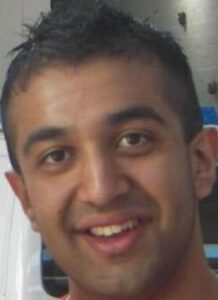Blog by Naveed Sharif

In this blog, I will be reflecting on my leadership journey; including experiences challenges and outputs I have encountered in my NHS leadership journey to date. Excelling in my academic journey has provided me with an imbedded and highly transactional element of learning and development. My ancestral history has embraced some key learning insomuch as the oppressive, discriminatory societal behaviours my parents witnessed and experienced when they came to the UK in the 1960’s.
This learning was important as this was my breakthrough in ‘escaping’ the oppression and discrimination that my parents had experienced. I was brought up by my parents who experienced societal challenges in ‘fitting in’ and I will discuss how this affected my values and attitudes.
My leadership journey begins in the education system with my parents driving me to bridge the gap of their own lack of opportunity in having an education and excelling their lives with the omission of opportunities around gaining formal qualifications. My father is a kind, compassionate and charitable man that worked in the cotton industry as an immigrant to the UK. He describes facing extreme oppression and discrimination from the national front (a far-right group), being chased through Blackburn town-centre and having his first wages stolen. This not only motivated my academic journey, but also my passion for EDI.
My parents pushed for me and my 5 sisters to have a strong foundation through great education. Throughout Nursery, Primary, Junior and High School was where my journey of leadership began. I was encouraged to partake in extracurricular activities, being a Prefect, on the School Council and Head Boy. This led to me to achieving 10 grade A GCSE’s and then going on to complete my Btec-National/Higher-National-Diploma in Public sector management (Distinction profiles); 1st Class B.A. Honours in Public Sector Leadership, MBA, MSC, MA, MPhil/PhD transition. This was because my father always highlighted that you need to be more qualified and educated than your indigenous peers in-order to be treated equally by organisations that you work for. I did not challenge this as this was his lived trauma and very real to him.
This influenced my leadership practice, insomuch as owning my power and privilege from a wider intersectionality perspective (r.e.my Race/Gender). This defines me from a power, identity, and sense of self-worth perspective. I am driven to challenge the injustices that my parents experienced that still exist today. Reflecting on my own personal experiences; I believe that my upbringing helped to cultivate my values of hard work, teamwork, and collaboration. Working with other members of the community taught me the importance of pulling together and supporting one another towards common goals.
My mother was a big influence on my life, she was forward thinking and was determined for us not to pursue my ancestral routes in the farming life in Pakistan, as she felt this was burdensome and difficult. Her views were radically different to my aunties and uncles, and this was considered rebellious. However, her perspective on pursuing education and financial stability has had a permanent positive impact on my own values and my leadership drive in supporting colleagues to strive for driving their careers forward. This has positively impacted on my leadership practice as this supports me in becoming a democratic/collaborative leader.
Many factors have influenced my leadership and in my current role, national intelligence and strategy associated with the COVID19 programme influences how I flex my leadership styles. It would be remiss also not to recognise factors associated with my gender, race, religion, and region of birth that impact on my leadership journey. I own my privilege, for example I am acutely aware that being from a Minority Ethnic background, Muslim heritage and being brought up in an area of deprivation can have a differential negative impact on career trajectory.
Moreover, recognising racial biases within the NHS (in respect of my lived experience) has enabled me to support equity and parity within the system and challenge the orthodoxies that exist within both formal and informal cultures within the NHS system as a whole. I remain enthused and positive in my leadership journey and I am currently on my trajectory of completing my Nye Bevan Executive Director Development Programme in my pursuit of achieving to my full and complete potential. I truly believe that the NHS is the best healthcare system in the world that is free at the point of use and provides compassionate care to our citizens. I will continue to lead in the integrated care system to ensure that our citizens receive the best healthcare that the NHS has to offer.
Naveed Sharif – Head of System Vaccination Operations Cell (SVOC) and Vaccination Population Health Equity
